
6 Good Reflexes to Avoid Colics in Horses
Colic in horses, a source of anxiety for all owners, often hitting without warning which can lead to death… The digestive system, given its length (about 20 meters) and its operation (digestion of plant fibers continuously), is a fragile system that can easily get out of sync or get tangled.
In this article we will give you some tips to help you take care of the digestive system of your horse. We will highlight some anxiety-provoking situations that must be avoided or in which we must be particularly attentive to our horses.
Table des matières
Reflex # 1 – Feed sufficient forage to your horse
Back to origins: in their natural habitat, horses spend most of the time (16 hours a day) grazing. They eat small amounts of feed regularly.
It is important to respect their eating balance by feeding them enough forage. Your horse’s ration can then be supplemented by pellets according to his physical activity. In no case should pellets be the main element of his diet. These are very rich and more difficult to digest.
The presence of hay in the box also prevents the horse from taking straw litter as the main food. The latter, little digestible, promotes the formation of plugs and colic.
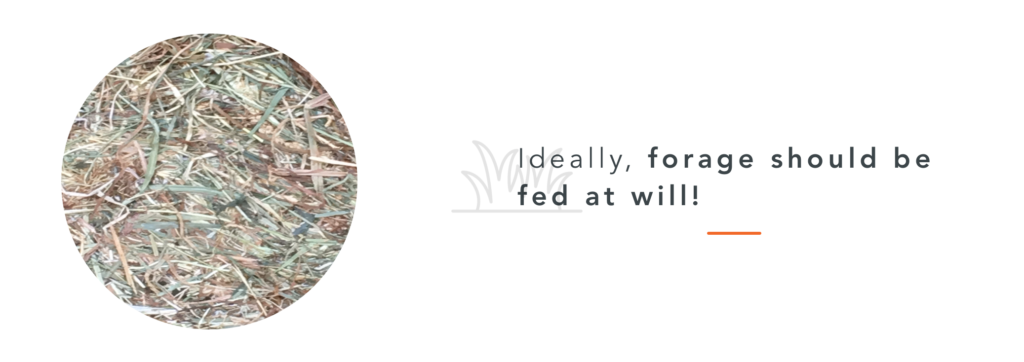
Reflex # 2 – Feed properly
The order of food distribution and how to give it is also important!
The pellets must be fed after the forage because it facilitates the digestion. Indeed, the forage increases salivation which helps regulating the acidity of the stomach.
We must try to spread the grain to the maximum so that the goinfres horses do not swallow it without chewing.
Finally it is essential to never forget access to water, of good quality and at will. Horses are heavy drinkers: they can drink between 25 and 75 liters of water a day depending on the climate, they physical activity, conformation, etc.
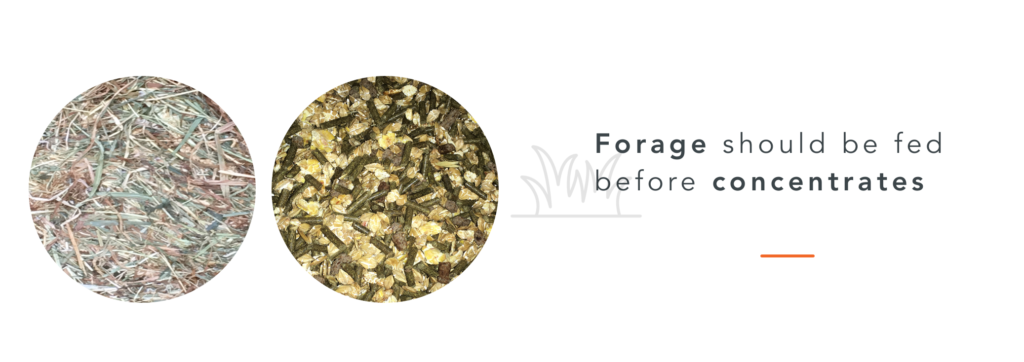
📚 Read more: 3 things to avoid when feeding your horse
Reflex # 3 – Keep an extra eye on your horse in case of sudden changes
Stress promotes colic. We must therefore avoid sudden environmental changes (new place, new congeners, new owner). When environmental changes occur, it is imperative to decrease the diet (especially pellets). You must pay particular attention to your horse during these periods of change and make sure that you feed and hydrate him properly.
Finally, fast weather changes are likely to promote colics in some sensitive horses.
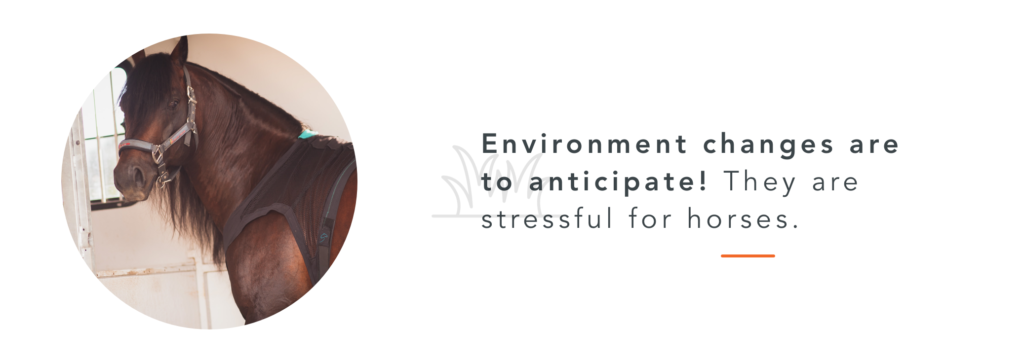
📚 Read more: How to react if you horse sweats and is dehydrated
Reflex # 4 – Ensure daily outings
Horses living in the boxes must be go out every day: paddock, freedom, longe, train … A bored horse will tend to develop behavioral ticks, some of which may be harmful to him!
In addition, a bored horse will tend to “attack” his straw and, as we said earlier in the article, cause digestive problems or even colics…
And again, think about giving him more forage!
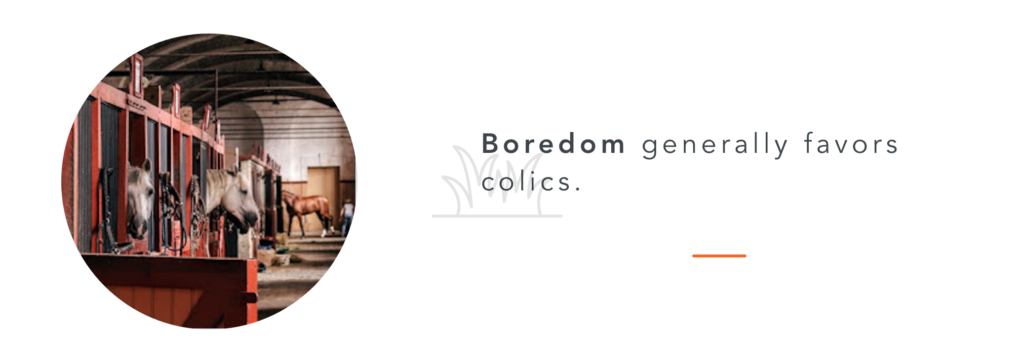
Moreover, with the Equisense Motion / Motion S, you can now follow his activity to make sure trains enough!
Reflex # 5 – Maintain his teeth
Horse feed consists mainly of vegetable fibers difficult to digest. Therefore, chewing has a key role in making these fibers easier to assimilate during their passage through the digestive tract.
The horse’s teeth have a continuous growth which can injure the inside of the his mouth thus, making chewing painful leading to less chewing.
An annual dentist appointment will keep them leveled thus, palliating an imperfect mastication at the origin of a bad digestion and risks of colics.
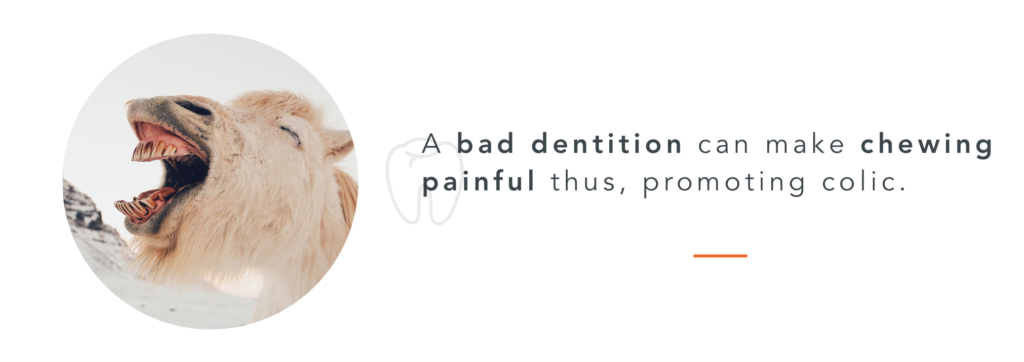
By the way, the Equisense Motion / Motion S will help you track your horse’s treatments and appointments!
Reflex # 6 – Keep worms away
Regular deworming is essential to reduce worms presence in your horse’s gut therefore, to avoid possible occlusions that cause colics. Deworm 3 to 4 times a year.
For a horses living in the boxes, avoiding putting them in the field 24 to 48 hours after deworming will reduce soil contamination due to internal parasites.
For a horse living in the meadow, deworm before meadow switch, a regular rotation of the pastures will avoid overgrazing but also reduce parasite pressure.
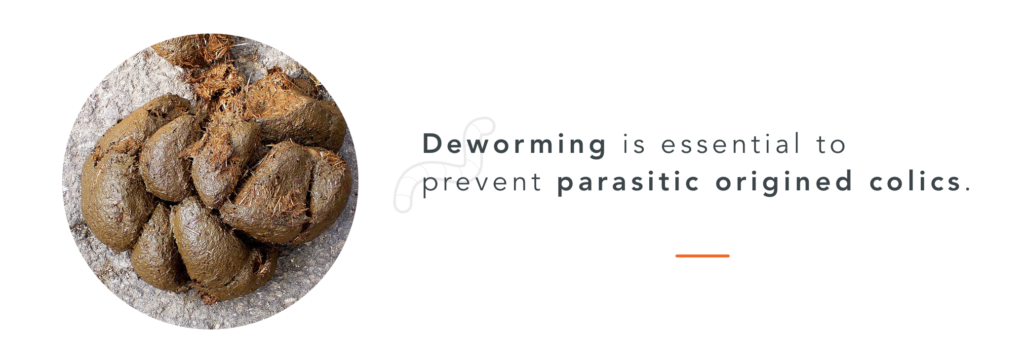
These tips do not guarantee that your horse will never have colics but they do act as prevention!
Equisense team
Illustrations
Cheval qui baille, Photo by Dan Cook on Unsplash
Teeth by Nook Fulloption from the Noun Project
worm by Sean Maldjian from the Noun Project